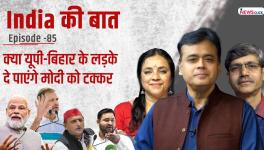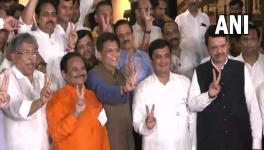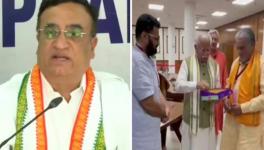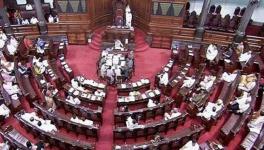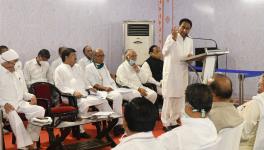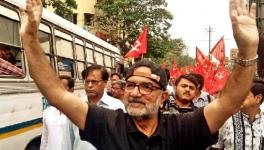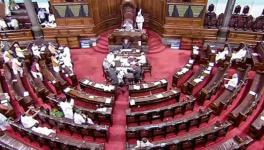Why Has Rajya Sabha Fallen Short of India’s Aspirations?
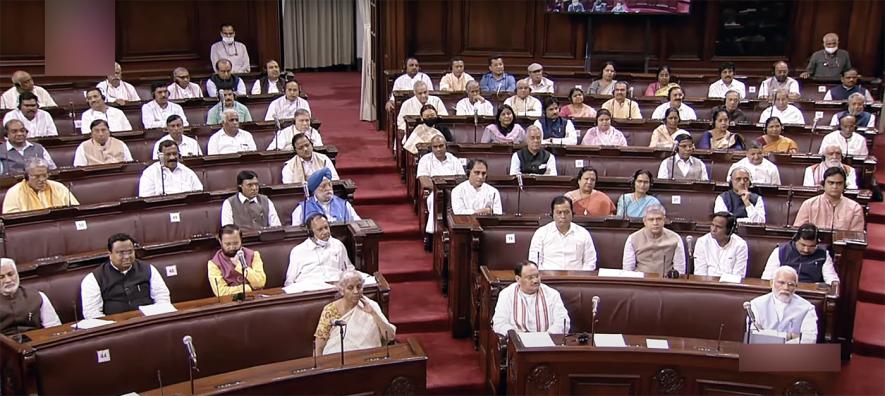
Image courtesy: ANI
In the decennial Rajya Sabha elections conducted for 57 seats across 15 states over the past few months, more than 40 candidates won unopposed. The Rajya Sabha has a new chairperson as well. However, both these elections show that in the last few decades, the Rajya Sabha has been reduced to just another forum for political parties to consolidate their power. The framers of the Indian Republic did not envision this sorry state of affairs for the Upper House. The question is whether our political parties choose to undermine the Upper House of Parliament. If yes, then why?
An Upper House of Parliament was meant to satisfy three main objectives. Primarily to provide the states with representation to ensure the popular mandate of the government at the Centre does not bulldoze the voices and concerns of any state. The Rajya Sabha’s secondary objective was to function as a house of elders consisting of various elites—intellectual, social, business, media, and others eminent in their fields. This was done with the hope that their active participation in the highest law-making body would add value to the laws being framed and the popular discourse. Finally, the Rajya Sabha was essential to ascertain the continuity of the State. The Rajya Sabha does not dissolve like the Lok Sabha, and this continuity is considered necessary for the survival of the State.
Barring the continuity logic mentioned above, the Rajya Sabha seems to have failed on the other two counts because it has been transformed into a stage for the brutal display of money-power nexus and horse-trading, particularly in the last few decades. Indeed, the current Hindutva government has intensified this deterioration. However, the reasons are more institutional and structural than anecdotal because the blame does not lie entirely with a party or politician but rather the practicalities of having an Upper House with legislative powers.
Consider this: for the Rajya Sabha to function as the chamber of elders that uplifts the level of debate and discourse within the House, the popular government must have two prerequisites. First, it should be comfortable with its mandate in the Lower House to make room for elites from outside the party in the Upper House. A party lacking the required numbers would want to accommodate as many party members or loyalists as possible to ensure it does not hurt its party or coalition’s interests. A second prerequisite is that the popular government must have a leadership with a definite vision and regard for democratic values. This attribute would make it want to welcome people from other domains to enrich the proceedings of the House. Unfortunately, even if we assume all of them possessed such virtues, governments in the last few decades failed to fulfil the promises of the framers of the Constitution because of political instability throughout this period. The need for superior legislative powers outweighed other considerations.
Every party wants to accommodate its members and loyalists in the system as much as possible. If it is not in power, which results in the inability to access the resources of the state (including positions of power), they innovate and find other means to achieve this. The larger parties, such as the Bharatiya Janata Party (BJP) and the Congress party, have expanded their lists of office-bearers to accomplish this goal. The BJP has more than 15 organisational departments, with the number of members holding an official designation running into the hundreds. The Congress has about 50 secretary positions within its organisational set-up under the All India Congress Committees. Such symbolic appointments within parties help maintain the relevance of members. A party in power would also want to replicate this model in positions of power in the states.
Rajya Sabha elections have also become a way to fill party coffers, as many parties nominate candidates in an apparent quid pro quo bid, possibly to gain financial benefits. Most often, parties nominate such candidates from their ‘safest’ seats. One can assert that for most such candidates, the Rajya Sabha would appear only as an economic investment.
Interestingly enough, the presence of higher-order thinking individuals with considerable strength in the ‘indirectly elected chamber’ also poses a paradox for the popular government. If a party or coalition is insecure about the possibility of retaining power, why would it strengthen the Upper House with intellectual elites who may undermine its “elected” strength later? This tension is why Manmohan Singh, Arun Jaitley, Arun Shourie, DP Tripathi, Sitaram Yechury and Manoj Jha, as some examples from recent memory, appear as figures who uphold the values of the Rajya Sabha but represent exceptions rather than the norm. Political appointees or symbolic nominations such as Raghav Chadha, Imran Pratapgarhi, and many others are the norms. Against this backdrop, it is only expected that a party would seek to ensure its survival first, and concerns like the level of debates and quality of discourse would take the backseat. The Rajya Sabha, unfortunately, has fallen victim to this process.
The authors are researchers at the Politics Initiative of the Centre for Policy Research, Delhi. The views are personal.
Get the latest reports & analysis with people's perspective on Protests, movements & deep analytical videos, discussions of the current affairs in your Telegram app. Subscribe to NewsClick's Telegram channel & get Real-Time updates on stories, as they get published on our website.









